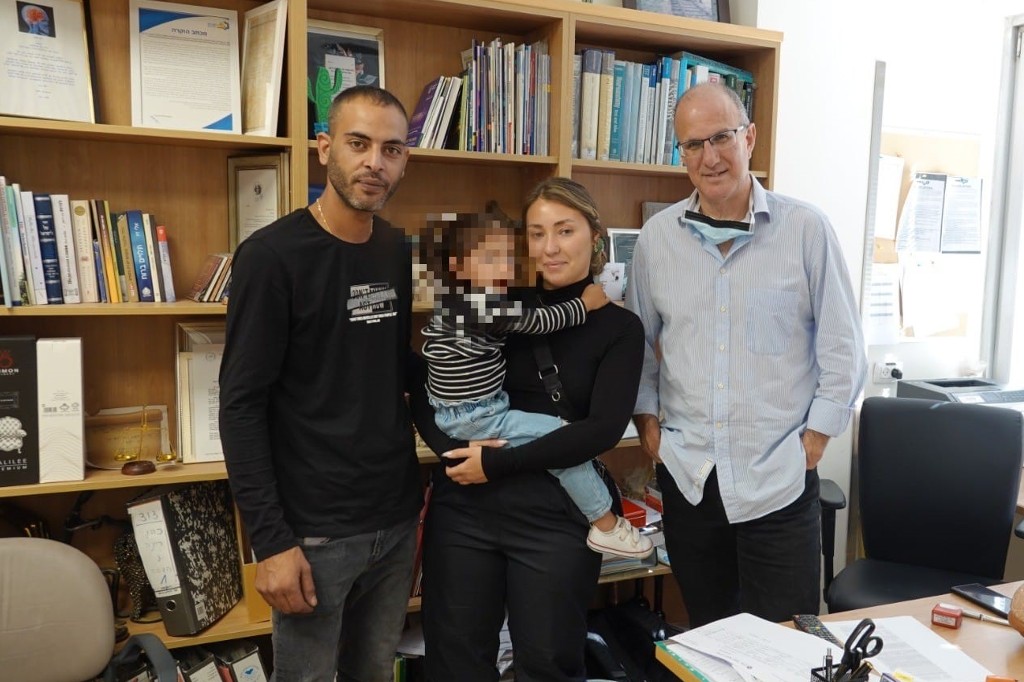The two-year-old girl was taken to the Shaare Zedek Medical Center in Jerusalem, where radiographs revealed an astonishing case.
By Pesach Benson, TPS
From the day she was born, the little girl identified as A. had a prominent blue mark on the bridge of the nose. For two years, one doctor after another in her hometown of Kiryat Malachi looked at the mark and said it was nothing to worry about.
But the parents still had concerns.
When she turned two, A. was taken to the Shaare Zedek Medical Center in Jerusalem where radiographs revealed an astonishing case: Due to a congenital defect in the toddler’s skull, part of the brain was sliding into her nasal cavity.
Dr. Nevo Margalit, director of Shaare Zedek’s neurosurgery department, who treated A., ted A., says that a congenital change found at the base of the toddler’s skull, which damages the closed structure of the skull, allows part of the brain — usually outer an outer layer called the brain envelope, but sometimes brain tissue too — descends towards the sinuses.
“A blue mark like the one in this case was interpreted as a kind of stain, a small birthmark and it was clear that it was difficult to think about a diagnosis of brain tissue,” said Dr. Margalit. “In the end, this is a rare find.”
He explained that “If the toddler had not been diagnosed, over time the risk is continued monitoring of brain tissue, an infection of the nasal cavity that could develop into the brain area and cause meningitis. Fortunately, she was diagnosed while recovering well from the operation and returned to a full routine.”
Dr. Margalit said that A. underwent surgery to close the base of the skull. “In older children or adults, the surgery is sometimes performed through the nose. In a young girl like in this case, the preferred choice is through a small opening of the skull and an upper repair that will help maintain the area over time,” he explained.
The parents, who asked not to be identified, said, “We thought there was something, but we didn’t imagine that what was stuck there in the nose was the brain. When we were told about the find, we were shocked.”
They added their appreciation to the Shaare Zedek staff.
“We are grateful,” the said. “A. will return to the educational framework very soon and will be able to behave just like the other children.”


